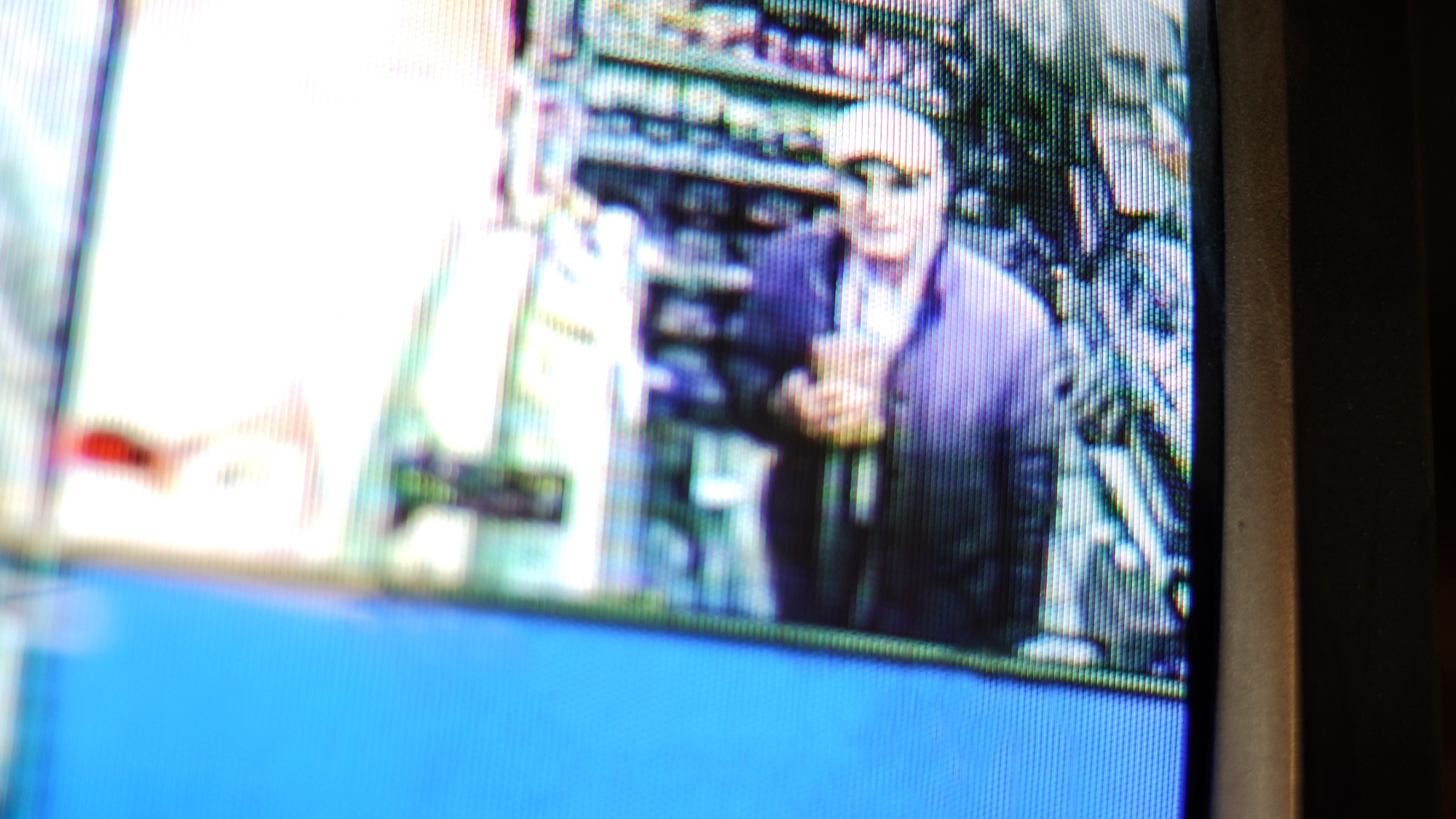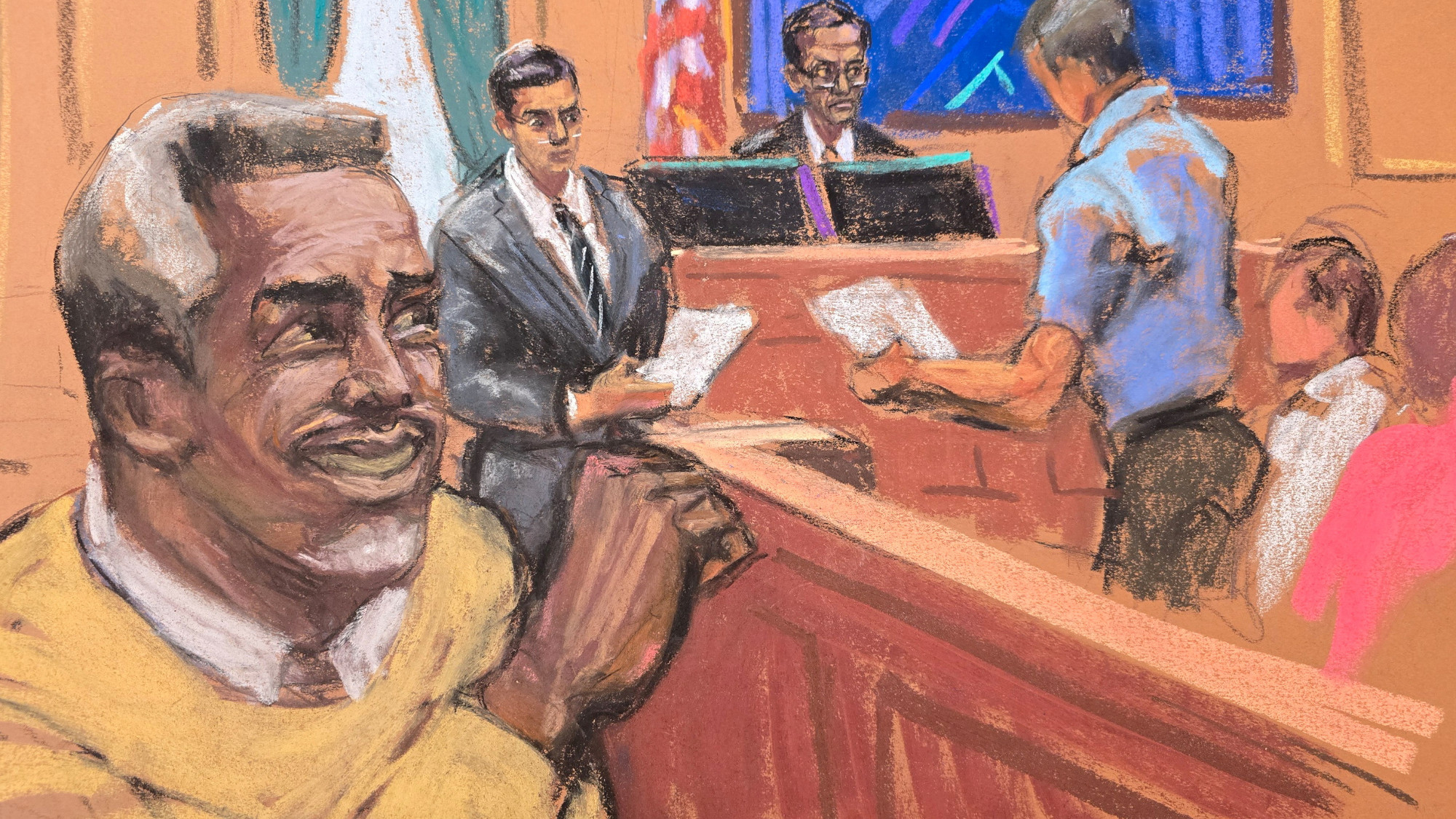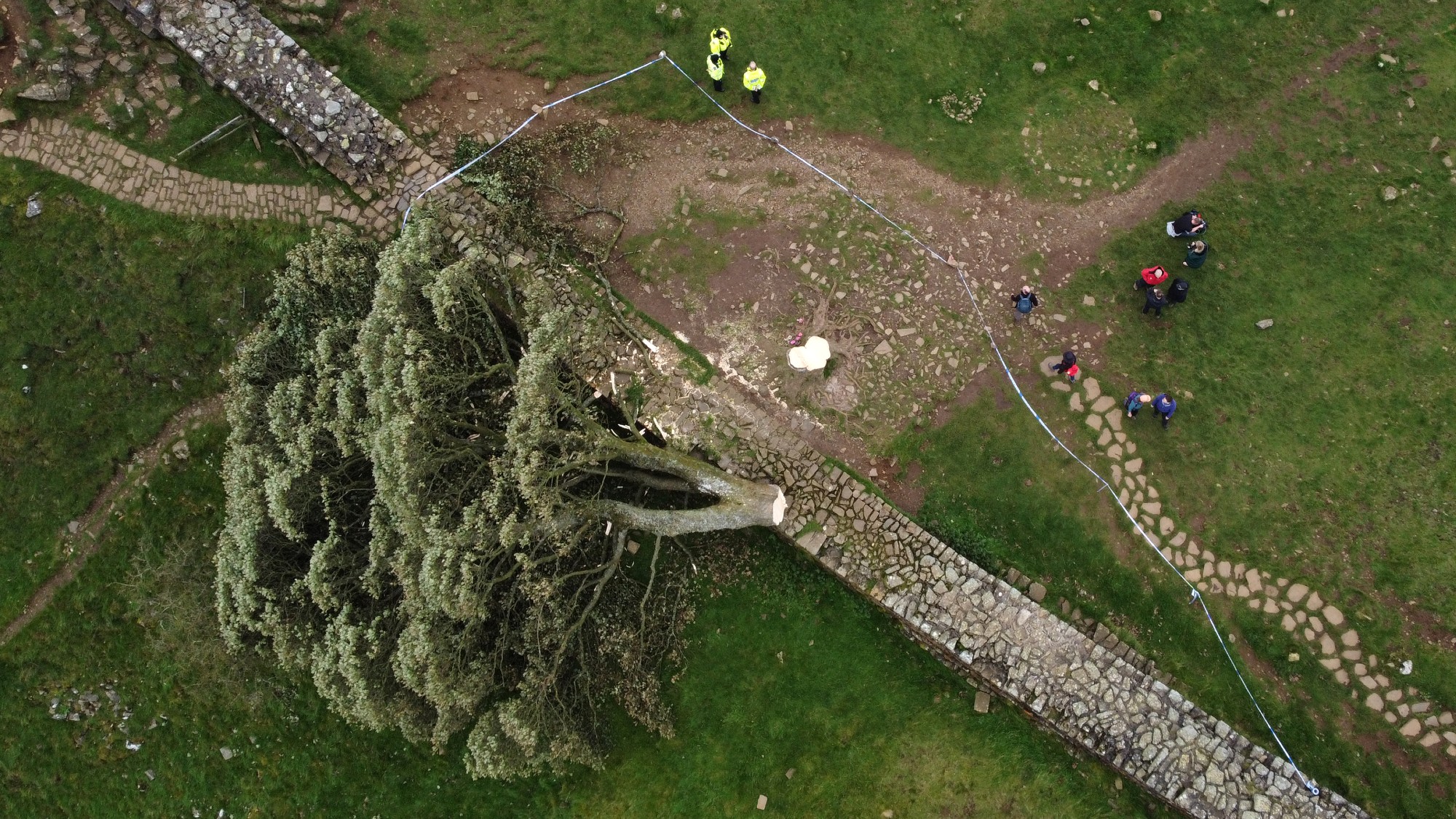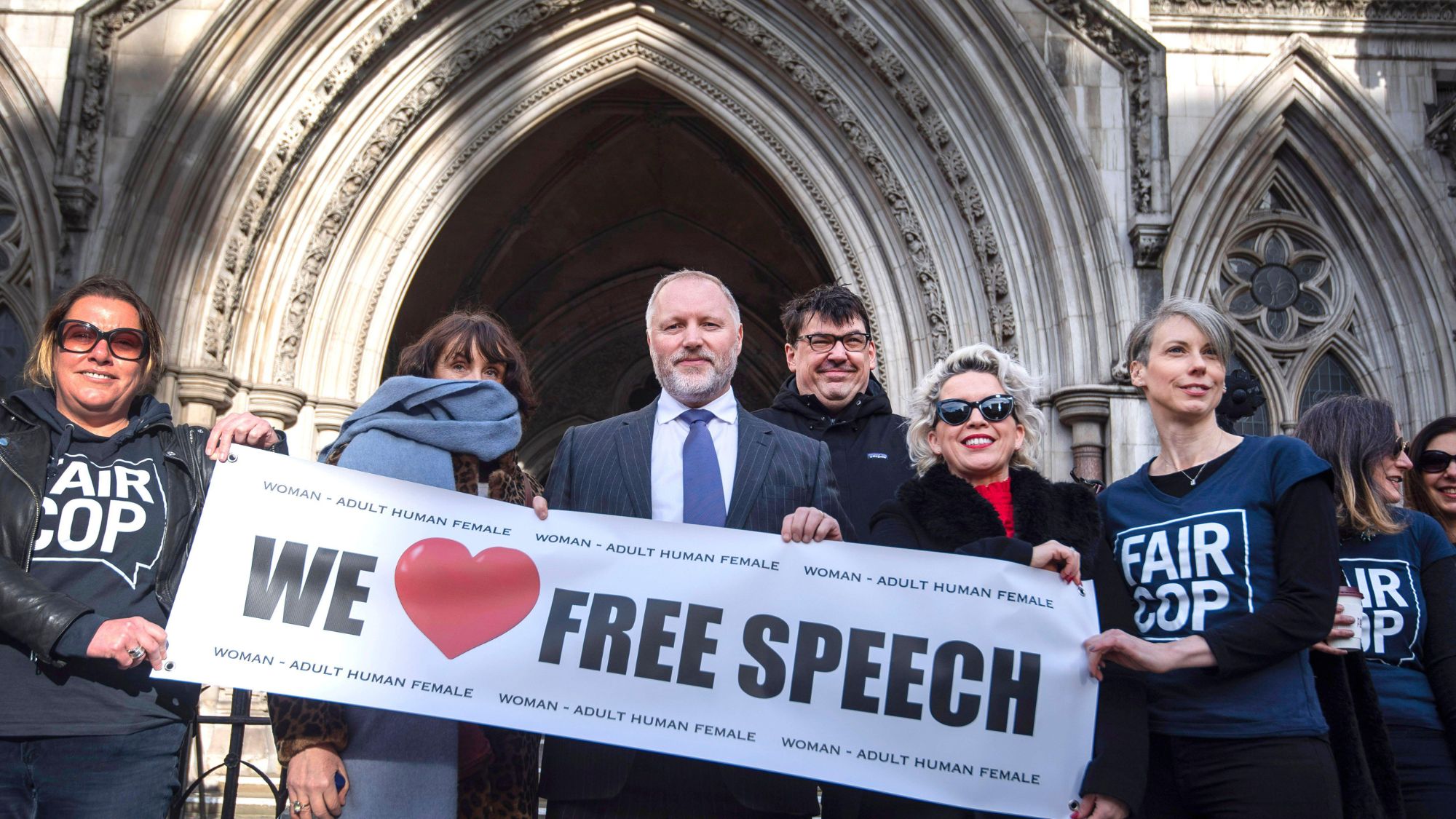Why has shoplifting got worse?
Drug dependency drives majority of retail theft, but recent years have also seen an increase in organised gangs targeting shelves

A free daily email with the biggest news stories of the day – and the best features from TheWeek.com
You are now subscribed
Your newsletter sign-up was successful
Shoplifting figures have hit a series of all-time highs. The Office for National Statistics figures for 2024 show that police in England and Wales logged 516,971 offences: a 20% rise on the 2023 figures; the rate has more than doubled since 2021 alone. The true number is vastly higher, because so few offences are actually reported to the police: according to the British Retail Consortium, the number of thefts rose by 3.7 million last year, to a record high of 20.4 million (more than 55,000 a day).
Theft cost shops and supermarkets an estimated £2.2 billion in 2023/24; retailers have warned that it is "spiralling out of control", leaving staff fearing for their safety, and denting profits of independent high street retailers and supermarket giants alike. The Co-op has warned of a state of "lawlessness on the UK high street that has never been seen before".
Why has shoplifting got worse?
It's not entirely clear. The underlying causes of shoplifting are typically social factors. The Association of Convenience Stores, which represents over 50,000 shops, says almost half of shoplifters are repeat offenders (known as "local prolifics") with drug or alcohol problems. One such offender interviewed by the BBC in 2023 was estimated to have stolen goods worth over £140,000 in one year. A 2018 report by the Centre for Social Justice found that drug dependency drives about 70% of all UK retail theft.
The Week
Escape your echo chamber. Get the facts behind the news, plus analysis from multiple perspectives.

Sign up for The Week's Free Newsletters
From our morning news briefing to a weekly Good News Newsletter, get the best of The Week delivered directly to your inbox.
From our morning news briefing to a weekly Good News Newsletter, get the best of The Week delivered directly to your inbox.
However, recent years have also seen an increase in organised gangs that target shops – stealing goods that are then sold on at discount prices. The rise in the cost of living, which has raised economic pressures generally and made everyday items more expensive, has almost certainly also increased such crimes.
Self-checkouts in large supermarkets haven't helped, either: one poll in February suggested that 37% of British adults had deliberately failed to scan an item when using self-service checkouts. These people have been dubbed "Swipers" – Seemingly Well-Intentioned Patrons Engaging in Regular Shoplifting. And retailers say that a failure to police shoplifting properly has made the problem much worse.
What's being stolen?
Thieves, especially gangs, target goods that are of high value, but light and easy to sell on. Alcohol, baby formula, cosmetics, protein powder, meat, coffee and chocolate are often stolen; retailers report that many such items are grabbed in bulk, to be hawked at markets or online. Clothes are a favourite; Primark's boss said last year that "the cost of shoplifting is now bigger than our bill for rates". Increases in thefts of staples such as pasta, sugar and milk have also grown in recent years. In many supermarkets, items such as steak and cheese are now fitted with security tags to deter would-be thieves.
What are the police doing?
Frankly, too little: there is an increasing consensus that shoplifting has been all but decriminalised in Britain. Fewer than one in five shoplifting offences reported in England and Wales resulted in a charge or a summons in 2023/24 (a 2% increase on the previous year). There were 28,955 convictions in court in 2023, compared with 71,998 a decade earlier. In the year to March 2024, just 431 shoplifters were handed fixed penalty notices (the lowest form of punishment used for the theft of goods valued at under £100). That's a 98% fall from a decade earlier. Retailers complain that no action is taken, with police seldom attending, even in cases where theft is accompanied by violence.
A free daily email with the biggest news stories of the day – and the best features from TheWeek.com
Why do police not take action?
Central government funding for policing was reduced by 22% in real terms between 2010 and 2019, heavily reducing police numbers. With fewer resources, police must set priorities, using a risk assessment tool dubbed Thrive (Threat, Harm, Risk, Investigation, Vulnerability, Engagement) to decide whether attendance is necessary; shoplifting often doesn't make the grade. Also, in 2014 the law was changed to make "low-value shoplifting" (where the value of the stolen goods does not exceed £200) a summary offence (a criminal offence that is only triable in the magistrates' court). As a result, thieves often think that they can steal with relative impunity so long as they stay below the £200 threshold.
As a result of all this, according to a report commissioned by the Co-op entitled Stealing With Impunity, police have "lost grip" on retail theft, and retailers have lost confidence in the police, which in turn results in chronic under-reporting of crime.
What's the government doing?
A police Retail Crime Action Plan was launched in 2023, committing the police to engage in all lines of inquiry where evidence is provided. Operation Opal was set up to identify prolific offenders by collecting intelligence from all UK police forces. Last August, Home Secretary Yvette Cooper promised to crack down on what she called "an epidemic in our society"; to remove the £200 threshold, bring in stronger powers to ban repeat offenders from town centres, make assaults on shop workers a specific criminal offence, and to boost neighbourhood policing. An extra 3,000 officers and community support officers will be hired over the next 12 months in England and Wales. In addition, the dip in police numbers occurring up to 2019 has now been reversed.
What can shops do?
Retailers have invested heavily in crime prevention measures such as security guards, CCTV and body cameras for staff. Private security firms are increasingly widening their services to include everything from "bobbies on the beat" to private prosecutions. Operation Opal is partly funded by Project Pegasus, a partnership between retailers, police and security companies. But the price of preventative action is high: retailers spent some £1.8 billion on such measures last year – a heavy extra cost for an already embattled high street.
-
 At least 8 dead in California’s deadliest avalanche
At least 8 dead in California’s deadliest avalancheSpeed Read The avalanche near Lake Tahoe was the deadliest in modern California history and the worst in the US since 1981
-
 Political cartoons for February 19
Political cartoons for February 19Cartoons Thursday’s political cartoons include a suspicious package, a piece of the cake, and more
-
 The Gallivant: style and charm steps from Camber Sands
The Gallivant: style and charm steps from Camber SandsThe Week Recommends Nestled behind the dunes, this luxury hotel is a great place to hunker down and get cosy
-
 The Epstein files: glimpses of a deeply disturbing world
The Epstein files: glimpses of a deeply disturbing worldIn the Spotlight Trove of released documents paint a picture of depravity and privilege in which men hold the cards, and women are powerless or peripheral
-
 Death in Minneapolis: a shooting dividing the US
Death in Minneapolis: a shooting dividing the USIn the Spotlight Federal response to Renee Good’s shooting suggest priority is ‘vilifying Trump’s perceived enemies rather than informing the public’
-
 How the Bondi massacre unfolded
How the Bondi massacre unfoldedIn Depth Deadly terrorist attack during Hanukkah celebration in Sydney prompts review of Australia’s gun control laws and reckoning over global rise in antisemitism
-
 Diddy: An abuser who escaped justice?
Diddy: An abuser who escaped justice?Feature The jury cleared Sean Combs of major charges but found him guilty of lesser offenses
-
 Crime: Why murder rates are plummeting
Crime: Why murder rates are plummetingFeature Despite public fears, murder rates have dropped nationwide for the third year in a row
-
 The Sycamore Gap: justice but no answers
The Sycamore Gap: justice but no answersIn The Spotlight 'Damning' evidence convicted Daniel Graham and Adam Carruthers, but why they felled the historic tree remains a mystery
-
 What are grooming gangs? The UK scandal, explained
What are grooming gangs? The UK scandal, explainedThe Explainer Three-year inquiry will ‘root out this evil once and for all’, says home secretary
-
 NCHIs: the controversy over non-crime hate incidents
NCHIs: the controversy over non-crime hate incidentsThe Explainer Is the policing of non-crime hate incidents an Orwellian outrage or an essential tool of modern law enforcement?